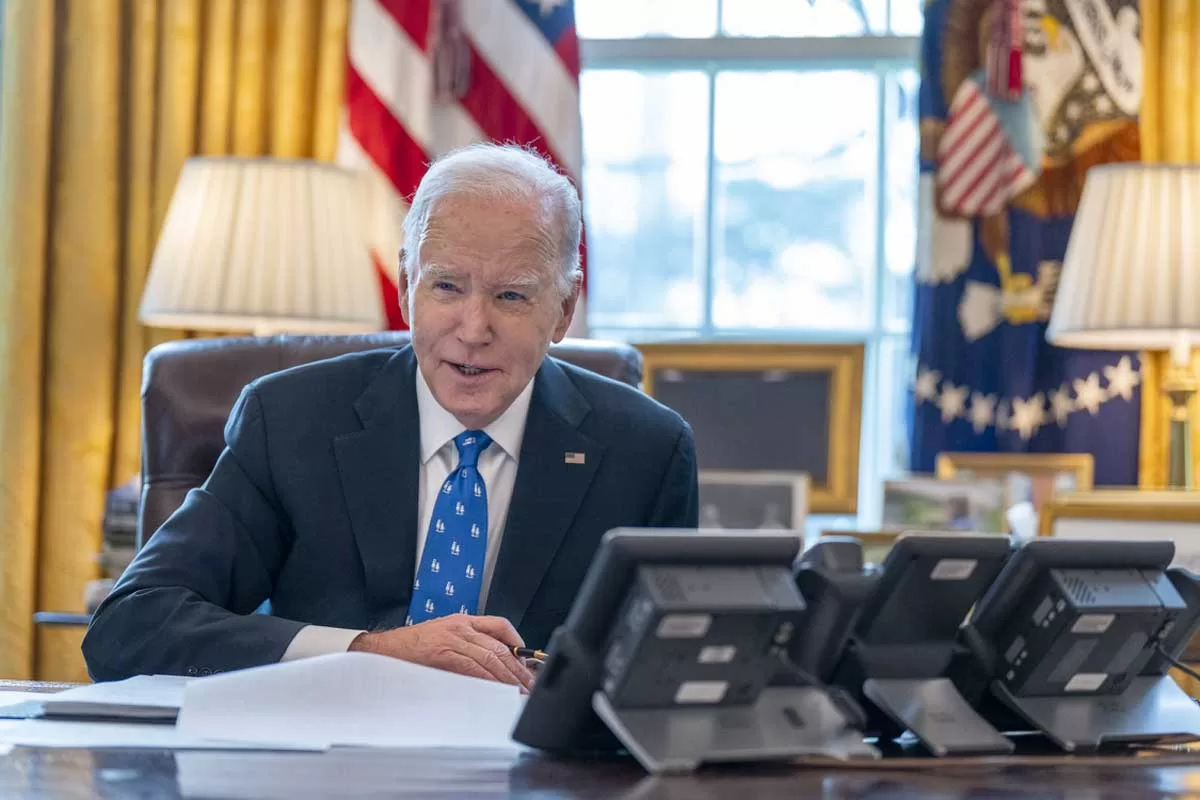After months of ineffective public wrangling, the diplomatic prestige of the US is at a record low.
President Biden’s pledge to build a temporary floating pier to help transport humanitarian aid to hundreds of thousands of displaced and starving Palestinians is a last throw of the dice before he fights for re-election.
The hope is that the move will loosen the stranglehold on humanitarian aid reaching Gaza in such a conclusive way that it will determine the course of a future political settlement for Palestine.
But it is ultimately a gamble and plenty can go wrong. The military have long memories. In 1967 the USS Liberty was hit by an Israeli torpedo while intercepting communications during the Six Day War. The tragedy was always deemed to have been an accident but it still killed 34 US sailors and wounded 171.
Perhaps in a bid to stop a provocative, grandstanding attack by Hamas, the US is understood to have asked Qatar to operate and largely finance the pier despite Israeli opposition.
The US move to build the pier is built on existing initiatives. Last November, Cyprus proposed hosting a sea corridor to Gaza, something that now has the full support of the European Union.
But it is Washington’s Arab allies who have shown the way in sending aid to Gaza, with the United Arab Emirates (through its aid funding) at the heart of the latest effort in the form of a maritime corridor via Cyprus.
The Corridor which was launched earlier this month is no substitute for land deliveries as aid groups have warned, but does help alleviate some of Gazans’ suffering.
Other regional states like Jordan have embarked on similar endeavours, with Amman responsible for two field hospitals in Gaza. It was joined by the UAE with one of its own in December. Jordanian aircraft, under a long-established agreement with Israel, have also been dropping medical and food supplies provided by donor nations together with other partners including Egypt and the UAE.
Abu Dhabi has also provided millions of dollars of humanitarian aid to Gazans and set up a medical airbridge for severely injured children. So far, over 600 have been evacuated through Rafah and taken to the Emirates for treatment.
Thanks to the strategic foresight of its involvement with the Abraham Accords, the UAE was able to leverage its diplomatic ties with Israel and extract the children with impressive speed.
This kind of urgent, practical thinking has been glaringly absent among Western partners. Of all the signatories of the Abraham Accords, the UAE stands out as the one with the most active, mature diplomacy in support of long-term peace.
Abu Dhabi’s commitment to the goal of a two-state solution is at the core of its policy and the country is now stepping forward to offer major funding for the US-led seaborne supply route and for the future rebuilding of Gaza’s shattered infrastructure.
In a quieter move next door to Gaza, the IMF’s urgent $8bn support to Egypt’s collapsing economy, was given heft by the simultaneous announcement by ADQ, the Abu Dhabi investment vehicle, to invest $35bn in projects in Egypt, providing the Central Bank with a vital additional buffer.
Stabilising Egypt is essential for repairing the wider damage in the region, though setting a viable and secure future for the Israel-Palestinian tandem is by far the greater challenge.
The United States, with its belated awakening, is fortunate to have the huge and unwavering financial and diplomatic support of Arab partners such as the UAE and Saudi Arabia. Their policy views on their region’s future need to be heeded.
